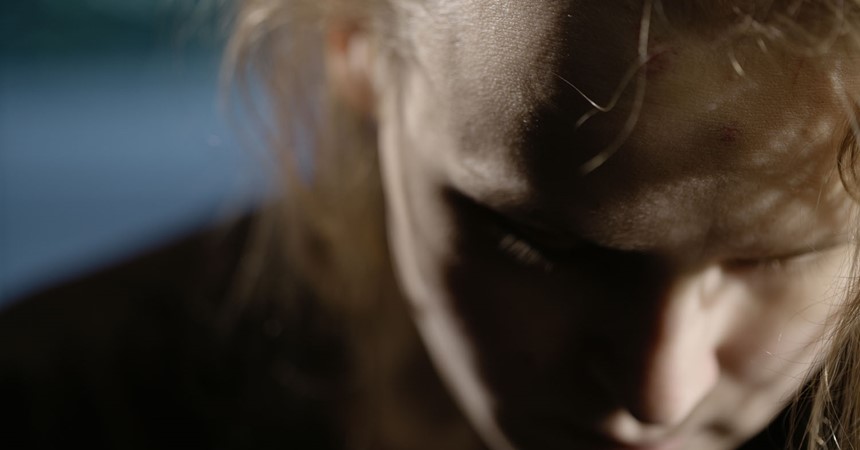Research has shown that living in a home where there is violence can have long-lasting negative effects on children’s wellbeing. These effects include social isolation and relationship impairment, poor concentration and hyper-vigilance, presenting similar to ADHD, and risk-taking behaviours with a much higher threat of developing drug, alcohol and mental health issues later in life.
One of the most demonstrated and effective ways of reducing these distressing levels of impairment is to reduce the incidence of domestic violence and limit the extent of intergenerational abuse. The task of empowering women to find new paths away from violence, to identify new values for themselves, is the core task of change. CatholicCare’s Brighter Futures recognises that keeping a vulnerable woman and child/ren engaged, particularly as she contemplates change, is the best way of ensuring that when she moves to the action stage, she can be supported and resourced in her decisions.
So many times we hear, ‘Why doesn’t she just leave him?’ and ‘She keeps going back to him’ − and so many times we advocate that we, as a community, need to support her and her children in doing so. I challenge this mindset of ‘just leaving him’ with the boiling frog analogy. The premise is that if a frog is put suddenly into boiling water, it will jump out, but if it is put in cold water which is then brought to the boil slowly, it will not perceive the danger and will be cooked to death. If we understand the grooming process of a domestic violence perpetrator, that there is a ‘wear down’ process by the perpetrator that can involve social isolation, financial control and the woman being stripped of all self worth and esteem, then we can start to work on empowering the woman and her children and support them in seeing their strengths again and implementing safety strategies.
It is also imperative that we, as a community, move the responsibility for the violence to the perpetrator and support the woman and her children in recognising new values for themselves and new boundaries. Empowerment is key in working with vulnerable women and ensuring long term sustainable change, beginning with small achievable goals and using strengths-based language in conversation. Referrals to appropriate services such as Victims Services Counselling and Domestic Violence specialist services (Women’s Domestic Violence Court Advocacy Service, Police Domestic Violence Liaison Officer and Housing specialist services) are a priority in good case management. The aim is to wrap the woman and children in support, violence prevention and service provision, mitigating social isolation and promoting a solid base to which the woman can return.
Consider this case study: Natalie and her daughter, Sarah, are referred to CatholicCare by way of Family and Community Services (FaCS) due to the domestic violence in the home perpetrated by Sarah’s father and its impact on Sarah. Natalie had experienced significant physical and emotional abuse at the hands of Sarah’s father, who is now incarcerated, and is now in a relationship with Ben. Ben moved into the home quickly and the relationship developed at lightning speed. Ben is also physically, verbally and emotionally violent and controlling. Natalie has multiple bruises on her face and body and is fearful of Ben’s reaction should she leave. Natalie has a beautiful attachment to her daughter, Sarah; however Ben does not like Natalie giving Sarah her attention and becomes aggressive so Natalie says she feels guilty for spending time with her daughter. As part of her case management in the Brighter Futures program, Natalie undergoes extensive domestic violence education, exploring the impact of the violence on her daughter and herself and the signs and types of domestic violence and safety planning. The power of language is not to be underestimated when working with women experiencing domestic violence. It’s vital to shift the responsibility to the perpetrator and hold him accountable for his actions by way of ADVO applications.
Over 18 months, Brighter Futures works intensively with Natalie, supporting her in becoming empowered. Natalie has been introduced to the local domestic violence liaison officer and specialist housing services. She is engaged with a case worker who is supporting Natalie and Sarah at the local women and children’s refuge. Natalie has more confidence in herself and has demonstrated a sound knowledge of the early warning signs of domestic violence. Natalie enrolled Sarah in child care in preparation for commencing a TAFE course. Natalie is working towards obtaining her provisional licence so she can be independent in transporting Sarah and has moved out of her previous unit, which was unsuitable due to accessibility and locality, and is currently on the priority list for Housing NSW’s Start Safely program. The long term effect of Natalie’s empowerment and service inclusion is that she can now recognise an unhealthy relationship in its early stages and this mitigates child protection concerns for Sarah living in another violent household. Sarah now has a mother who is modelling independence and maintaining boundaries. Should Natalie embark on a violent relationship, she now has the tools and resources to reconnect with the appropriate support services and safety plan. Sarah is thriving in child care and at home and is meeting her milestones.
According to Australia’s National Research Organisation for Women’s Safety Limited (ANROWS), 61% of women who have experienced violence perpetrated against them had children in their care. One in 6 women and 1 in 20 men experience domestic violence perpetrated against them. However, it is noted that much of the violence perpetrated against men is by men. Through Brighter Futures, CatholicCare supports both mothers and fathers with young children.
Stacey Northam is Family and Domestic Violence Case Manager at CatholicCare Social Services. If you have concerns regarding domestic violence please P CatholicCare Social Services (02) 6539 5900.























































































